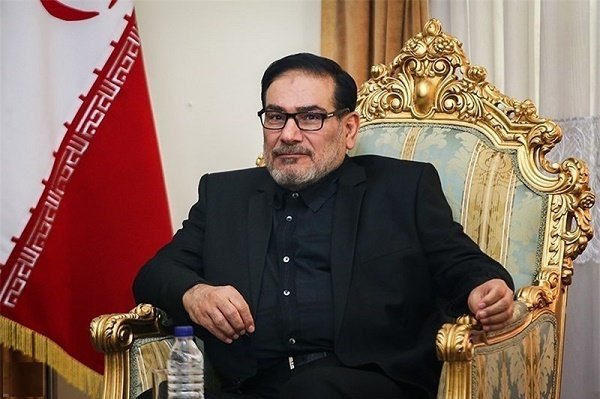Ali Shamkhani is in a tour of India and he met with Mr. Ajit Kumar Doval, National Security Adviser (NSA) of India on Saturday. He suggested that revival of joint military commission would further improve defense cooperation between Iran and India, and would serve as a new venue for exchange and share of opinions and positions; “some hegemonic powers would not countenance this level of ties with India, which makes necessary keeping alert to factors restricting our ties in the future,” Mr. Shamkhani told Doval. “We believe revival of Tehran-Moscow-New Delhi cooperation triangle would serve curbing terrorism and infiltration especially in Afghanistan; joint efforts should be waged to address historically imbedded issues among neighbors so that all should behave responsibly to contribute to economic, social, and cultural reshuffling of the region,” he demanded.
“India is a newly emerging economic power and we believe Iran and India could provide complementary roles for each other; Iran’s principled policy is to diversify her bilateral and multilateral cooperation in the region and to bring a level of stability to regular contribution of others to strategic policy areas,” Shamkhani told the meeting. “Broader capacities in Chabahar project provide testimony to Iran-India constructive economic cooperation, with third and fourth country joining the project, all the region would benefit from its capacities in trade.”
Shamkhani touched an area which would be regarded as India’s soft and sensitive area, that is, Kashmir, calling on Indians to exercise self-restraint in dealing with the public in the highly debated region; “serving the citizens would rule out the mentality which perceives government’s conduct as merely discriminatory and one which denigrate the less-developed communities with religious minorities,” he suggested.
Mr. Doval for his part, believed that cultural common elements and cyberspace capacities would undergird strategic relations between two countries; “energy sector is critical to bilateral ties and would secure long-term interests of both sides; with strategic and geopolitical developments in Middle East, regular contacts and dialogue of important regional powers would be important, especially of Iran, India, China, and Russia, which Indian government usually supported.
SH/3753293
























Your Comment